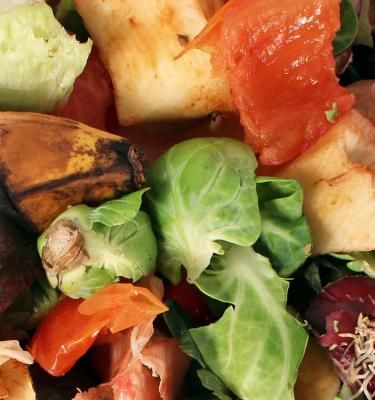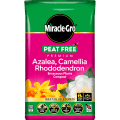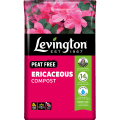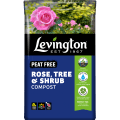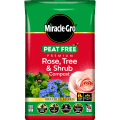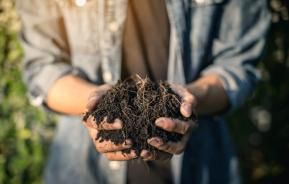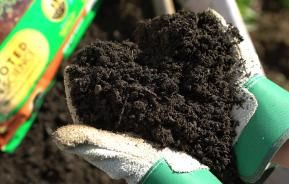Making your own compost is getting more popular, due to the increasingly green-conscious society. Home-made garden compost contains lots of nutrients that plants love - such as nitrogen and carbon. When you add it to your garden soil, it will make improvement and make it even better for growing plants!
Composting your kitchen and garden waste will give you an environmentally-friendly source of organic matter - and it’s free! It will take about 4 months to produce compost that’s lovely and crumbly and ready for planting your flowers, fruit and vegetables.
Why is composting important?
Waste such as food and grass accounts for around 35% of household waste that ends up in a landfill, where it breaks down and creates the powerful greenhouse gas, methane. As well as improving the environment and freeing up space at your local landfill site, compost is extremely practical for gardeners.
Compost helps soils ability to retain moisture, improves soil fertility and the general health of plants. Compost is essentially an organic fertiliser, so you will have no need for chemicals… another important benefit!
The Benefits of Composting
- It’s great for the environment. By composting at home you will reduce your carbon footprint by not buying factory-made fertilisers.
- Reduces landfill. This may not seem important, but it is. Ensuring your leftover food isn’t going into a landfill means that nutrients aren’t wasted, but critically, that it isn’t being burned and creating methane gas.
- It enriches your soil. In terms of your garden, when you pop compost on top of your soil it adds a bunch of lovely nutrients like nitrogen and carbon, both of which encourage the growth of plants.
- Introduces microorganisms into the soil. Organisms like fungi and bacteria aerate the soil, convert all the nitrogen into plant food, and unbelievably, also have a natural pesticide effect.
- Saves water and lowers erosion. Composting helps the soil retain its water. So on a big stretch of land, this can really help with erosion, and on a small stretch, keep the soil moist.
- Recycles your waste. Around a third of our waste is organic matter, so not only are you using it to feed your plants, you’ll notice a dramatic reduction in how many times you have to take the bin out. Win-win!
- It’s cheap! There are no expenses to composting other than making sure you have a place to compost outside or a little composting bin inside your kitchen.
How to make compost
You will need a compost bin, old dustbin or similar, with holes in the bottom and garden and/or kitchen plant waste. The worms and micro-organisms needed to break it down into compost will find you! You will also want to use a compost bin that prevents unwanted scavengers! The compost bin ideally needs to be 150-250 litres and should be easy to fill and empty.
Step 1
You’ll need a sunny corner of your garden to put your bin (or you can build your own from recycled timber – look on the internet for ideas). It needs to be placed on the soil, as you want worms and other micro-organisms to come up through the soil to help, and for any liquid to drain away. It will also need a cover to keep the warmth in and the rain out.
Step 2
This is the most important part! You’ll need to keep adding equal amounts of nitrogen-rich green waste (grass clippings, green leaves, weeds, vegetable kitchen waste) and carbon-rich woody waste (prunings, wood chippings, torn-up paper, cardboard, straw or dead leaves).
For every wheelbarrow load or a bucketful of cut grass, you should mix in the same volume of sawdust, shredded cardboard or other woody waste. Avoid meat, fat and cooked food otherwise, you’ll just attract foxes, rats and other vermin; also worms don’t really like an excess of citrus remains.
Any large pieces of material should be cut into smaller pieces or even shredded; the smaller the pieces, the quicker they will rot down.
Step 3
Composting is a biochemical process whereby organic matter is decomposed by naturally-occurring micro-organisms. Keep the compost heap moist, warm (wrap with a piece of old carpet in winter) and aerated, as these are the conditions that worms and micro-organisms love. Turn your heap occasionally with a garden fork to let the air in, making sure that you mix all the outside ingredients to the inside.
If you find that your compost isn’t rotting down quickly enough - it’s always slower in winter - then add a compost accelerator.
Step 4
When the mixture is brown and crumbly and smells a bit like damp wood, then you’re ready to use in the garden!
